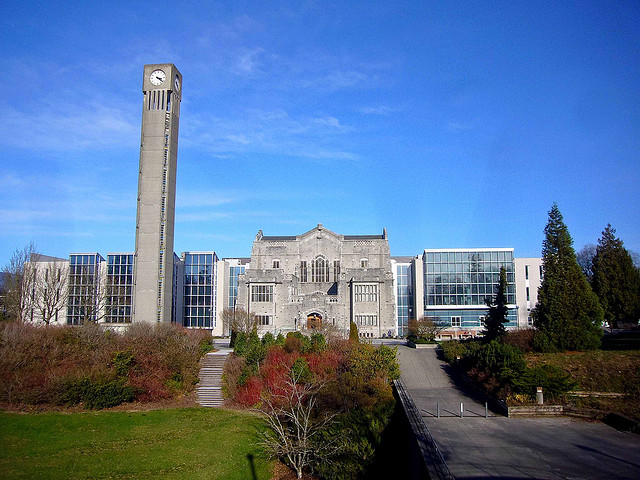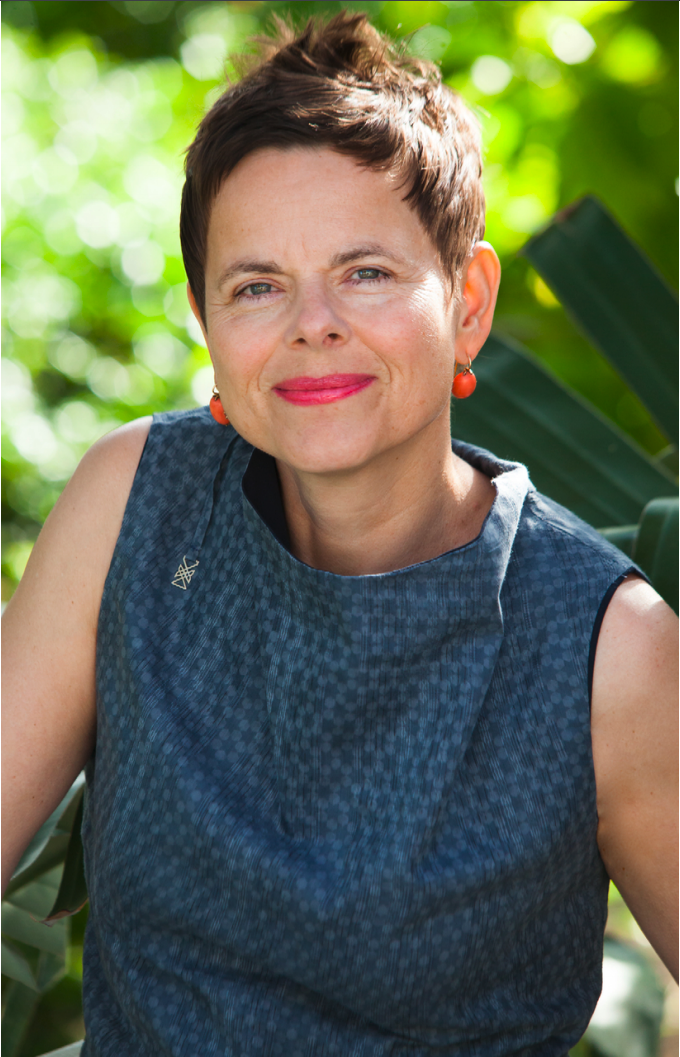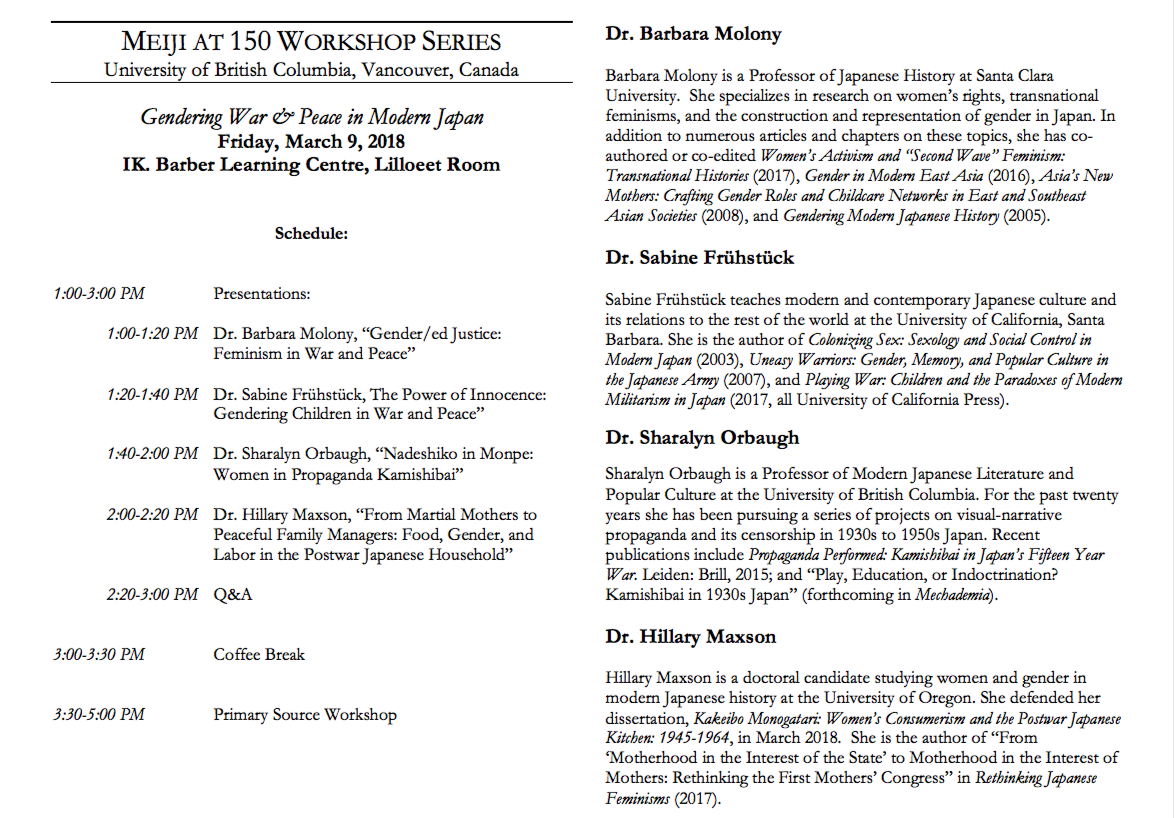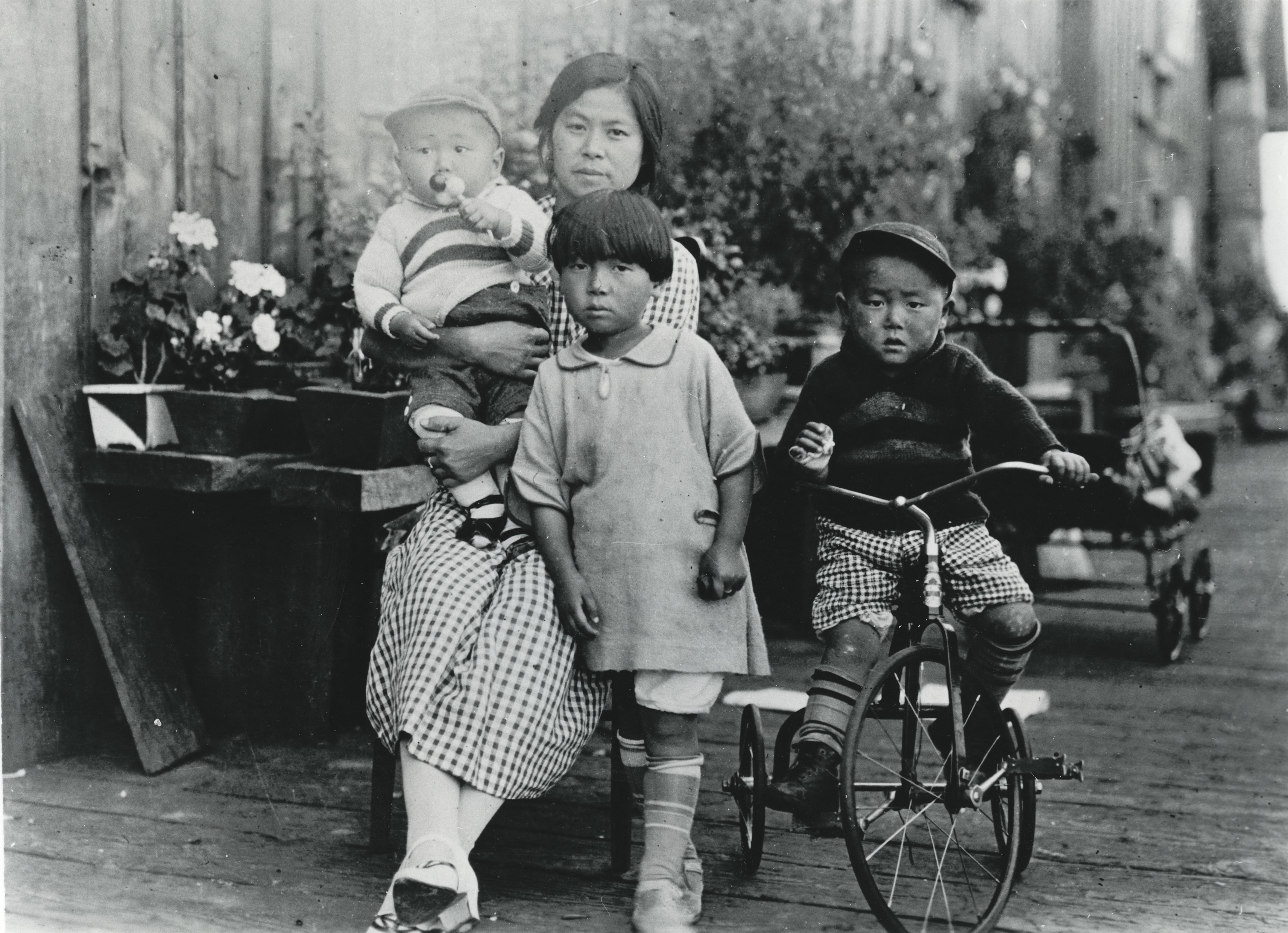Mrs. Ume Niwatsukino with children Hisako, Hiroshi and Shigeru in Steveston, 1926. Courtesy of the University of British Columbia Library, Rare Books and Special Collections, Japanese Canadian Research Collection, JCPC_25_084.
Gendering War and Peace in Modern Japan
 Friday, March 9, 2018
Friday, March 9, 2018
IK Barber Learning Centre, Lillooet Room
1:00-5:00 PM
The 2017-2018 Academic Year sees the 150th anniversary of Japan’s 1868 “Meiji Restoration,” an epochal political revolution that sparked Japan’s remarkable modernization, dramatic cultural transformation, and rapid emergence onto the global stage.
One legacy of the Meiji Restoration was Japanese imperialist expansion in East Asia in the late-19th century, breeding a culture of militarism that pervaded Japanese society in the early 20th and that led Japan into war with China and the Western powers from 1937-1945. Fearing the encroachment of Western imperialist nations into East Asia, Japanese government leaders and military strategists cast their expansionary gaze to the mainland of Asia in the name of securing autarky and territorial buffers. Victories in war over China in 1895 and Russia a decade later in 1905, along with the forceful colonial acquisition of Taiwan and Korea, announced Japan as a first-rate imperial power. Yet this new military might also aroused the ire of those Western countries entertaining their own imperial ambitions, particularly the United States. A decade of international cooperation following WWI gave way in the mid-1920s to renewed Japanese aggression in China as defensive strategists resolved to strengthen Japanese interests through any means necessary, including political assassination, coup d’état, and independent military action. All the while, Japan’s increasing international isolation accelerated the emergence of a fervent nationalism at home that by the 1930s grew into a popular culture that demanded unquestioned patriotism, unwavering support of the military, and unswerving loyalty to the “eternal great cause” of the empire. War against the United States brought devastation and defeat in 1945, when the empire and the militarist culture that fueled its creation were stripped away. In their place, the Japanese people embraced democracy and demilitarization, and pledged themselves to rebuilding Japan as a nation committed to peace.
At the fulcrum of this dramatic oscillation between war and peace, militarism and democracy, were the women and children of Japan. Women bore a singularly heavy burden. Not only were they expected to be the human factories of the empire, giving birth to future imperial soldiers, they were obliged to willfully send off their sons to war alongside their fathers, husbands, and brothers, watch their daughters march off to work in munitions factories, and evacuate their younger children to the rural countryside — all while cheering for the success of the military and the long life of the emperor. After the war, women again were asked to put aside personal grief and anguish as they bore the weight of rebuilding their families, their homes, and their nation. Demands put on children, meanwhile, shifted from devoting their lives to the defense of the empire to tirelessly dedicating their labor to the economic reconstruction of the nation.
“Gendering War and Peace in Modern Japan” convenes scholars of Japanese history and literature to consider the transwar positionality of women and children, resisting the tendency to see 1945 as a breakpoint and to instead analyze longer-term developments in years of both war and peace.
 “Gender/ed Justice: Feminism in War and Peace”
“Gender/ed Justice: Feminism in War and Peace”
Barbara Molony
Professor of History
Santa Clara University
 “The Power of Innocence: Gendering Children in War and Peace”
“The Power of Innocence: Gendering Children in War and Peace”
Sabine Frühstück
Professor, Department of East Asian Languages and Cultural Studies
Director, East Asia Center
University of California-Santa Barbara
 “Nadeshiko in Monpe: Women in Propaganda Kamishibai“
“Nadeshiko in Monpe: Women in Propaganda Kamishibai“
Sharalyn Orbaugh
Professor, Asian Studies
University of British Columbia
“From Martial Mothers to Peaceful Family Managers: Food, Gender, and Labor in the Postwar Japanese Household”
Dr. Hillary Maxson
Department of History, University of Oregon

Watch video of the lecture here:
Or listen to audio here:

 Faculty of Art
Faculty of Art
